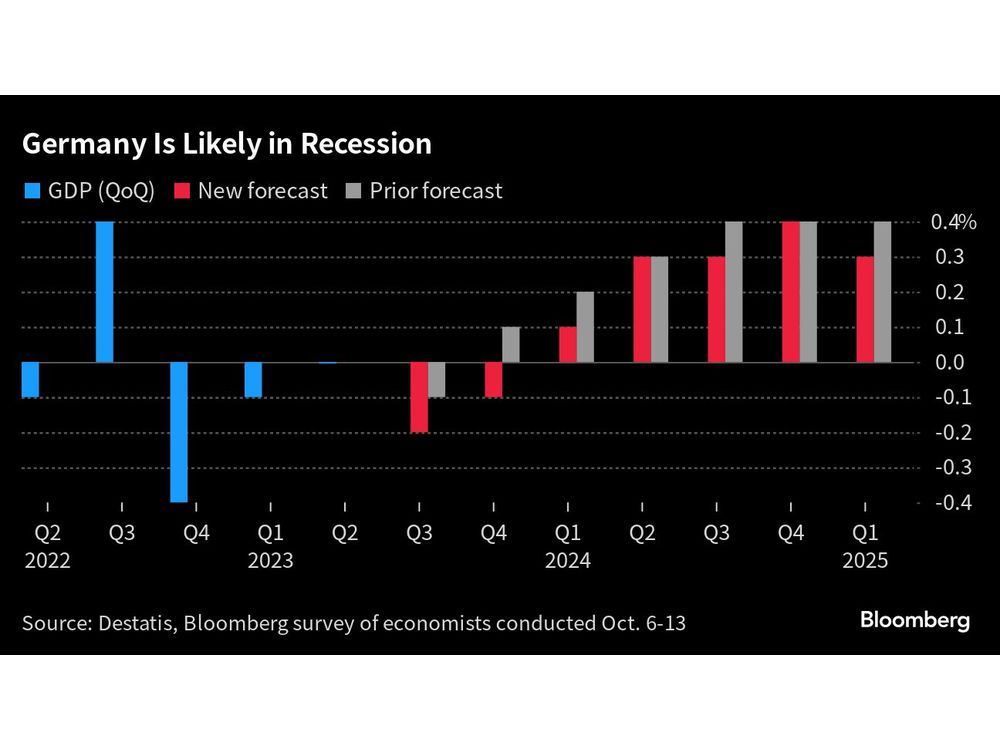
Article content
(Bloomberg) — Germany won’t escape a second recession this year as the economy long seen as Europe’s motor limps through persisting industrial weakness, according to forecasters.
Gross domestic product declined 0.2% in the quarter through September and will probably fall a further 0.1% before the end of 2023, Bloomberg’s survey of economists shows. Their predictions point to a feeble recovery then taking hold.
Article content
“Economic growth will be weak for many years due to several structural problems,” said Dennis Huchzermeier, a senior economist at Handelsblatt Research Institute in Duesseldorf. “Consequently, the German economy will shrink this year” and faces “lackluster growth” in subsequent years, he said.
The collective outlook suggests that Germany will have suffered five consecutive quarters without any expansion at all.
That underscores how sluggish Chinese export demand and an energy crisis have made Europe’s biggest economy stand out from its regional peers as a deadweight. That status has revived comparisons with the 1990s, when the country was labeled as the “sick man” of the region.
The forecasts show Germany GDP will drop 0.4% in 2023 and rebound just 0.5% next year. That’s a much weaker bounceback than anticipated in fresh predictions from the International Monetary Fund or the Germany government, for 0.9% and 1.3% respectively.
Whatever the outcome next year, the country’s prospects continue to trouble global finance officials.
“We see long standing challenges to growth,” Oya Celasun, deputy director of the IMF’s European department, told reporters on Friday in the Moroccan city of Marrakech. “There’s quite a few things that Germany must work on.”
Article content
In an interview with Bloomberg Television’s Francine Lacqua the same day, Deutsche Bank AG Chief Executive Officer Christian Sewing said the country needs structural reforms, “with regard to energy prices, with regard to infrastructure, immigration, and so on.”
“If we do this, I think Germany will see growth again,” he said. “Potentially not the number which we all wish in 2024, but from 2025.”
German Finance Minister Christian Lindner, another attendee at the IMF meetings in Marrakech, insisted that the economy’s prospects remain bright.
“Prophecies of doom are inappropriate,” he told reporters. “Germany has an enormous turnaround potential and solid economic foundations, and we’re determined to strengthen those foundations.”
Share this article in your social network